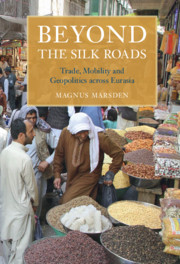This essay proposes that the study of Asia, thought of as an Inter-Asian space, can provide concepts that shed light on the social shapes of societies that are mobile, spatially expansive, and interactive with one other. Inter-Asia, an old world crisscrossed by interactions between parts that have known and recognized one another for centuries, provides an unmatched depth and breadth of mobile experience and material. Such material can be recognized if seen through concepts designed to bring out the shapes of mobile societies, and to analyze their dynamics. These concepts include mobility, disaggregation-reaggregation, connection, circulation, partial societies, transregional axis/intermediate scale, and outside-in analysis. They are offered in the spirit of philosophical housekeeping, to clarify and crystalize what is innovative about recent Asian studies that move beyond globalization, and to further those efforts. They are ways out of the box of classical social theory's internalist, constitutionalist paradigms that hamper the Inter-Asia venture.
